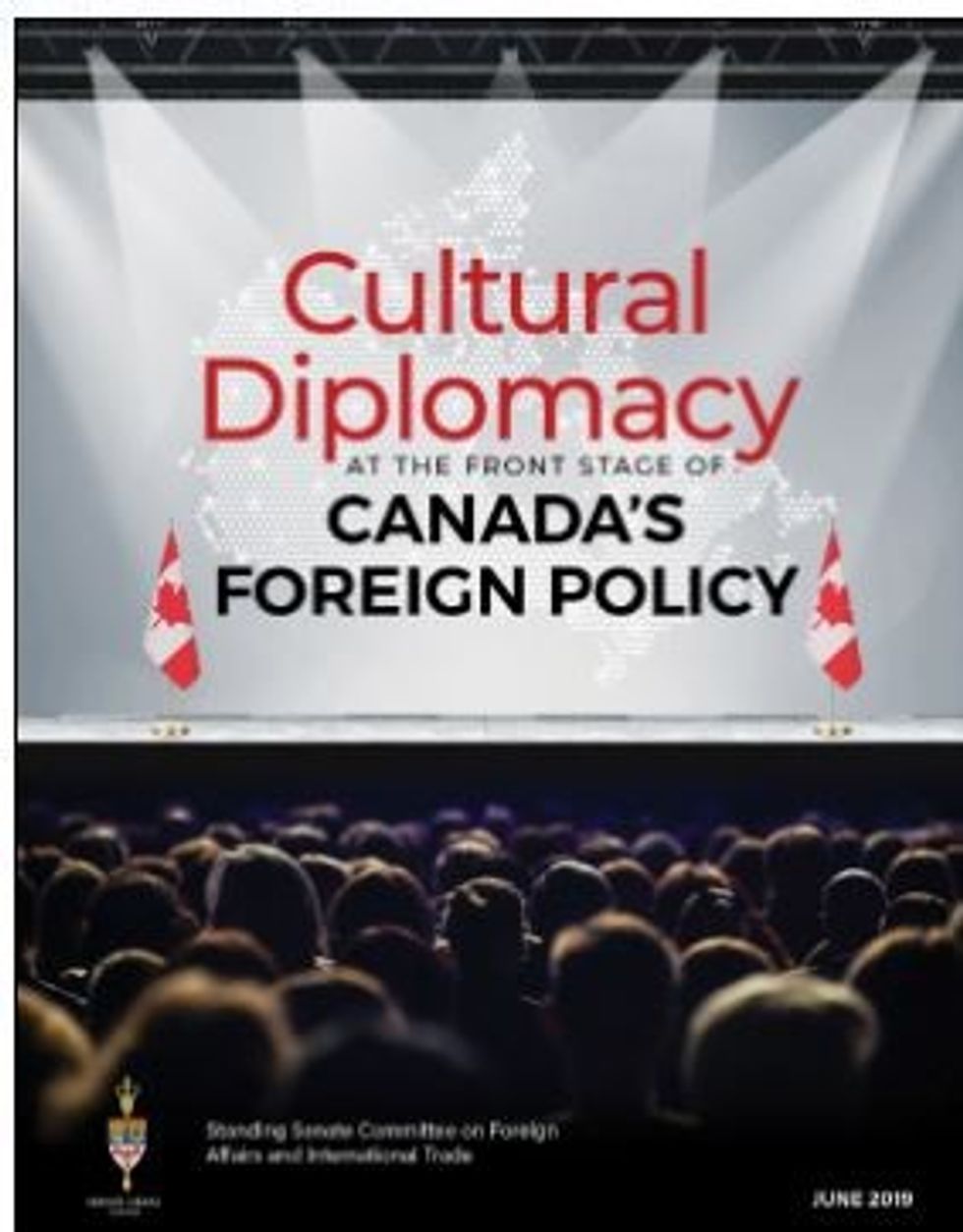Canada Needs A Cultural Strategy To Meet Foreign Policy Objectives
The federal government needs to invest more money and resources in promoting Canadian culture as a tool for diplomacy, a

By FYI Staff
The federal government needs to invest more money and resources in promoting Canadian culture as a tool for diplomacy, a report released Tuesday by the Senate foreign affairs committee argues.
The study presents the findings of the Standing Senate Committee on Foreign Affairs and International Trade on the role Canadian culture and the arts should play in Canada’s international relations.
The main conclusion is that cultural diplomacy should be a pillar of Canada’s foreign policy.
Countries practice cultural diplomacy for many reasons. Such activities can generate support for a country’s foreign policy priorities, improve mutual understanding and people-to-people ties, build trust for subsequent interactions, and advance matters of national interest.
The Committee’s study emphasized that a diverse range of Canadian artists have garnered international recognition for the quality of their work and have helped to project a positive image of Canada internationally. However, testimony also indicated that, in the absence of consistent and strategic support from the Canadian government for cultural diplomacy, important opportunities have been missed. A number of factors can explain this finding:
Arts and culture are an undervalued asset of Canadian foreign policy today.
Federal roles and responsibilities for cultural diplomacy are currently fragmented, thus undermining their effectiveness.
Federal funding devoted to the promotion of Canada’s culture and arts abroad has been insufficient and inconsistent.
Projecting a modern image of Canada, including by taking full advantage of Canada’s leadership in innovation and creativity in the cultural sector.
Identifying commercial opportunities for artists and cultural entrepreneurs in international markets.
Taking a people-centred approach, in leveraging the talent of the artists and creators from across the country, especially emerging and young artists.
Strengthening international collaboration based on the principle of reciprocity and the exchange of experience.
Supporting innovative approaches to reflect the new modes of creativity that have resulted from technological advances. Ensuring that cultural diplomacy be entrenched as a priority within Canada’s foreign – and trade – policy.
advertisement
In addition to the principles mentioned above, the Committee believes that the cultural and artistic dimensions of Canada’s foreign policy need to be enhanced and solidified through sound policy architecture.
Quick Facts
- This is the first comprehensive study of the role of arts and culture in Canadian foreign policy since the 1994 report by the Special Joint Committee of the Senate and the House of Commons on Reviewing Canadian Foreign Policy.
- Early post-War initiatives in cultural diplomacy include the establishment of Radio Canada International in 1945 and the creation in 1966 of a “Cultural Affairs” division within the Department of External Affairs.
- The committee held 27 hearings where it heard from more than 60 witnesses and received several written briefs.
Quotes
“The full reach and potential of cultural diplomacy, as an essential pillar of Canadian foreign policy, has yet to be maximized. We must develop a policy to consistently support Canada’s unique culture and arts in the international fora. This report underscores the richness of the Canadian culture and arts community and the way forward to ensure that the Government of Canada understands its potential for Canada’s future.”
- Senator Raynell Andreychuk, Chair of the committee
“We heard from many witnesses about the power of arts and culture to send messages that mere words or traditional diplomatic endeavours cannot convey. In order for our country and our values to be better understood in the world, we need to further rely on our arts and culture as tools of international influence.”
- SenatorPaul J. Massicotte, Deputy Chair of the committee
“Canada must invest in a strategic framework to support arts and culture in Canada. Supporting the development of Canada’s brand, and reinforcing that brand through cultural diplomacy, can shape the way this country is thought of on the global stage. If our brand is well received, our priorities are more likely to be met.”
- Senator Dennis Dawson, member of the Subcommittee on Agenda and Procedure

















